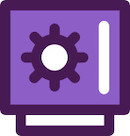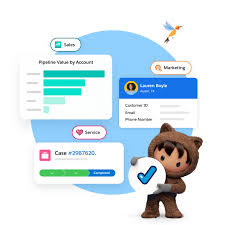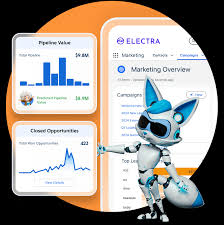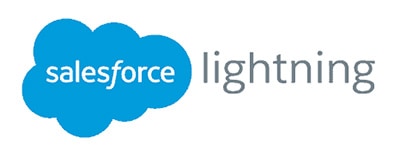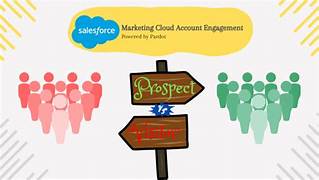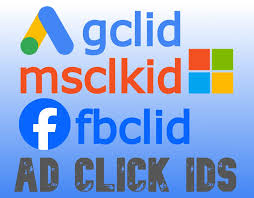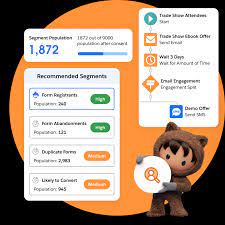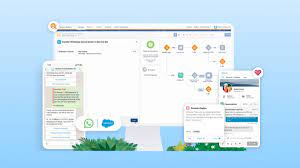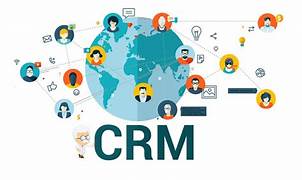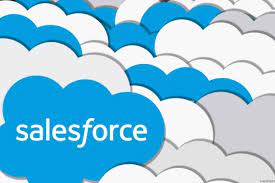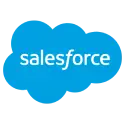
Generative AI in Healthcare
Reducing the Sales Cycle with Salesforce Account Engagement Solutions



Tectonic will help you better engage your patients with precision and elevate interactions with generative AI seamlessly integrated into your Salesforce CRM.
Patients are cautiously optimistic: nearly 60% of the public surveyed think using AI for healthcare administration is a “good or great idea,” and 85% would prefer providers spend more time focusing on patient care over administrative tasks. Just over 70% support using AI tools to allow providers more focus and improve care quality.
Clinicians spend about 28 hours per week on administrative tasks, mainly clinical documentation and communication. Medical and claims staff reported even higher administrative loads, with 34 and 36 hours spent weekly on tasks like documentation, communication, and prior authorization. Many respondents linked these demands directly to burnout, with 77% of claims staff, 81% of medical staff, and 82% of clinicians citing administrative burdens as significant contributors. Additionally, 78% of payer executives and 85% of provider executives noted that administrative work is a key driver of staffing shortages
Consolidate customer data on a unified platform and broaden your outreach using Artificial Intelligence (AI). University Hospitals is leveraging AI technology across its network of hospitals and outpatient facilities to enhance care coordination and streamline patient care. Effective care coordination—organizing patient care across various providers—is essential to delivering safe, appropriate, and efficient treatments.
The integration process also involves collaboration between IT and health informatics teams to evaluate how new AI tools align with existing workflows. For University Hospitals, this means assessing how tools interact with systems like the picture archiving and communication system (PACS) to streamline radiologist workflows
Salesforce is introducing a new library of out-of-the-box AI tools specifically designed for healthcare operations, available through its Health Cloud. These generative AI features aim to streamline time-consuming tasks by integrating directly into clinician workflows, enhancing both the quality and efficiency of patient care.
Beyond patient care, the new AI features will support business operations, including verifying insurance coverage, determining out-of-pocket costs, and ensuring eligibility—all designed to reduce administrative burdens and improve operational efficiency.
63% of healthcare organizations are using AI to analyze large patient data sets, identifying trends and informing population health management. Additionally, 58% use AI to examine individual patient data to uncover opportunities for improving health outcomes. Nearly half of the respondents also reported using AI to optimize the management of electronic health records (EHRs).
These findings align with a similar survey conducted by the University of Pittsburgh Medical Center’s Center for Connected Medicine (CCM), which highlighted AI as the most promising emerging technology in healthcare. The focus on AI stems from its ability to break down data silos and make use of the vast amount of clinical data healthcare organizations collect.
AI and data analytics are also seen as critical for maintaining competitiveness and resilience, particularly as organizations face digital transformation and financial challenges. In fact, 83% of respondents indicated that data-driven tools could help them stay ahead in these areas. Technology-related priorities, such as adopting an enterprise-wide approach to data analytics (44%) and enhancing decision-making through AI (41%), were top of mind for many healthcare leaders.
Improving patient experience (40%), health outcomes (35%), and patient engagement (29%) were also highlighted as key strategic goals that AI will help achieve.
The rapid advancements in large language models (LLMs) have introduced generative AI tools into nearly every business sector, including healthcare.
As defined by the Government Accountability Office, generative AI is “a technology that can create content, including text, images, audio, or video, when prompted by a user.” These systems learn patterns and relationships from vast datasets, enabling them to generate new content that resembles but is not identical to the original training data. This capability is powered by machine learning algorithms and statistical models.
In healthcare, generative AI is being utilized for various applications, including clinical documentation, patient communication, and clinical text summarization.
Physicians who used the ambient AI scribe reported positive outcomes, including more personal and meaningful patient interactions and reduced after-hours electronic health record (EHR) documentation. Early patient feedback was also favorable, with improved provider interactions noted. Additionally, ambient AI produced high-quality clinical documentation for clinician review. customer engagement data with sales and service teams. Identify champions on the buying committee based on prospects’ interactions with your marketing. Utilize dynamic dashboards to understand engagement at the campaign, individual, and account levels. Automatically show engagement history insights in your Salesforce CRM.
With the digital transformation in healthcare, patient portal messages have surged. A 2021 study in JAMIA reported a 157% increase in patient portal inbox messages since 2020. In response, some healthcare organizations are exploring the use of generative AI to draft replies to these messages.
A 2024 study published in JAMA Network Open evaluated the adoption of AI-generated draft replies to patient messages at an academic medical center. After five weeks, clinicians used the AI-generated drafts 20% of the time, a notable rate considering the LLMs were not fine-tuned for patient communication. Clinicians reported reduced task load and emotional exhaustion, suggesting that AI-generated replies could help alleviate burnout.
Summarizing information within patient records is a time-consuming task for clinicians, and errors in this process can negatively impact clinical decision support. Generative AI has shown potential in this area, with a 2023 study finding that LLM-generated summaries could outperform human expert summaries in terms of conciseness, completeness, and correctness. leads most likely to convert. This platform offers a comprehensive suite of features to establish meaningful relationships and empower sales teams to close deals.
Leadership should focus on establishing guidelines for LLM performance and identifying optimal clinical settings for AI tool trials. The study suggested that a subcommittee within the FDA, comprising physicians, healthcare administrators, developers, and investors, could effectively lead this effort.
Ready for a Generative AI Healthcare Implementation?
Explore the possibilities of Marketing Cloud Account Engagement or other Salesforce solutions based on your company’s goals. Tectonic is ready to partner with you, offering support at every stage of your Salesforce journey. Reach out online to request more information or schedule a call – we look forward to discussing your needs!




